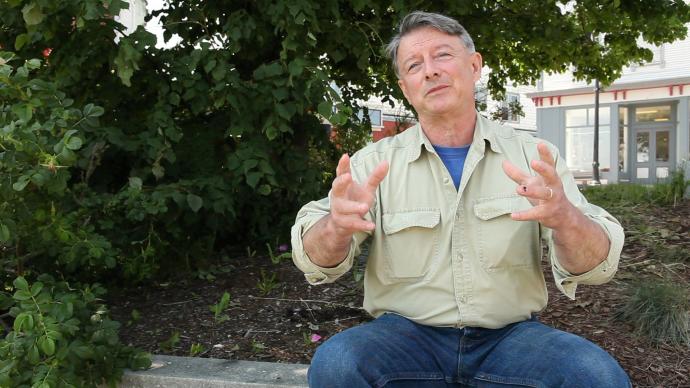Value-added food processing facilities—or community kitchens—provide affordable access for entrepreneurs, seafood harvesters, farmers, and other small business owners to kitchen facilities that would otherwise be financially inaccessible.
In 1998, Will Hopkins started the Cobscook Bay Resource Center in Eastport, Maine with the goal of helping local resource users, scientific researchers, government agencies, educators, and others to monitor and understand the Cobscook Bay ecosystem, the waters that surround this remote former island at the easternmost tip of the United States.
Over time, the Resource Center began using that understanding to develop and implement strategies for economic development based on the Bay’s renewable resources, particularly as a way to prop up its famous scallop fishery, which was beginning to flail in the mid-2000s.
What arose from that need was the idea for a shared-use commercial kitchen where scallop fishermen could test and develop products that would help capture the full value of their catch. The Resource Center also discovered an even greater need for the project, one shared by local farmers and restaurateurs: a way to market and distribute those products, which have been identified as primary barriers to success.
The for-profit Cobscook Marketplace accommodates that need by guiding members through the labeling and branding process of their product and then helping them to market it for distribution, both locally and in niche markets along the coast of Maine.
HOW IT WORKS
Fishermen, farmers, and other food producers join the co-op and, by an hour or daily rate, use the kitchen to develop new products with help from food experts at University of Maine-Orono. Co-op members then use the kitchen to produce their product which Cobscook Marketplace will help to market and distribute. This will help keep money in the local economy, support fishing families and family farms, reduce transportation costs, and ensure that fresh, healthy food stays available and becomes more affordable.
KEY FACTORS
- Garner long-term community support. The Cobscook Bay Resource Center spent nearly 20 years establishing relationships with the Eastport community and this project wouldn’t be possible without those connections.
- Invest in knowledgeable food consultants. Food consultants design food processing facilities for a living and can help to save time and money in the long-run.
- Learn about federal and state food safety. These types of facilities meet federal and state guidelines for prepared foods—which are far stricter than household kitchens, restaurant kitchens, or deli counters.
Q&A WITH WILL HOPKINS, DIRECTOR OF COBSCOOK BAY RESOURCE CENTER

How did this project start?
The focus of the Cobscook Bay Resource Center at the start was water quality monitoring and marine resource education. But as we saw our scallop industry begin to flail, we recognized the importance of developing and implementing strategies for economic development based on the Bat’s renewable resources, which is where the idea for the kitchen and marketplace.
How is the scallop fishery important to Cobscook Bay?
Cobscook Bay is very different than the rest of the coast of Maine in that we do not have the same kind of lobster resource that you have everywhere else in the state. Scallops are the species that we have in the greatest number and have the highest value. So we’re looking to start this out with half a dozen scallop fishermen, who want to belong to the co-op.
What will a project like this do for the economic vitality of the county?
When all the sardine plants closed down, not only were jobs lost, but the whole body of knowledge of folks who just knew how to get things done was lost, too. I’m hopeful that as people grow their own businesses, gain more experience in being successful at producing a product and marketing a product, that eventually over time, we’ll get some of that knowledge back, some of our young people will stay and they will become the people who will make things work in Washington County.
What’s your advice for anyone thinking of starting a project like this?
Take your time. You don’t know, there’s no way you can know from the beginning, everything you need to make it go. And be ready to be flexible and to shift.
CHALLENGES
- Gap in availability. In times of low membership and during busy fishing and farming months, it is likely that there wouldn’t be time for people to test new products in the kitchen.
OUTCOMES / RESULTS
- In 2015, the Marketplace sold Cobscook Bay scallops to 10 restaurants and specialty markets along the coast of Maine. They worked with over a dozen fishermen and farmers. They have a goal of doubling their efforts in 2016.
- In the first quarter of 2015, the Cobscook Kitchen and Marketplace signed on as a partner in a USDA grant with Healthy Acadia to help process farm produce from Washington County and get it into packaging for school lunches.
ADDITIONAL RESOURCES
Cobscook Bay Resource Center website
Originally Published March 2016

